Related Research Articles
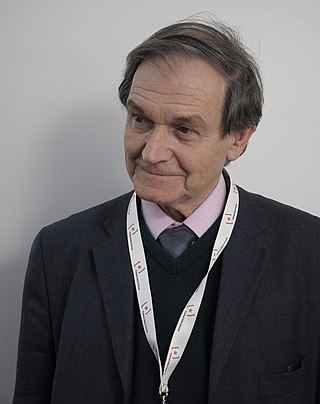
Sir Roger Penrose is an English mathematician, mathematical physicist, philosopher of science and Nobel Laureate in Physics. He is Emeritus Rouse Ball Professor of Mathematics in the University of Oxford, an emeritus fellow of Wadham College, Oxford, and an honorary fellow of St John's College, Cambridge, and University College London.

Max Born was a German-British physicist and mathematician who was instrumental in the development of quantum mechanics. He also made contributions to solid-state physics and optics and supervised the work of a number of notable physicists in the 1920s and 1930s. Born was awarded the 1954 Nobel Prize in Physics for his "fundamental research in quantum mechanics, especially in the statistical interpretation of the wave function".

Dugald Stewart was a Scottish philosopher and mathematician. Today regarded as one of the most important figures of the later Scottish Enlightenment, he was renowned as a populariser of the work of Francis Hutcheson and of Adam Smith. Trained in mathematics, medicine and philosophy, his lectures at the University of Edinburgh were widely disseminated by his many influential students. In 1783 he was a joint founder of the Royal Society of Edinburgh. In most contemporary documents he is referred to as Prof Dougal Stewart.

John Playfair FRSE, FRS was a Church of Scotland minister, remembered as a scientist and mathematician, and a professor of natural philosophy at the University of Edinburgh. He is best known for his book Illustrations of the Huttonian Theory of the Earth (1802), which summarised the work of James Hutton. It was through this book that Hutton's principle of uniformitarianism, later taken up by Charles Lyell, first reached a wide audience. Playfair's textbook Elements of Geometry made a brief expression of Euclid's parallel postulate known now as Playfair's axiom.

Sir Michael Victor Berry,, is a mathematical physicist at the University of Bristol, England.

Peter Ware Higgs is an English theoretical physicist, Emeritus Professor at the University of Edinburgh, and Nobel Prize laureate for his work on the mass of subatomic particles.

Dame Susan Jocelyn Bell Burnell is an astrophysicist from Northern Ireland who, as a postgraduate student, discovered the first radio pulsars in 1967. The discovery eventually earned the Nobel Prize in Physics in 1974; however, she was not one of the prize's recipients.

The Royal Society of Edinburgh (RSE) is Scotland's national academy of science and letters. It is a registered charity that operates on a wholly independent and non-partisan basis and provides public benefit throughout Scotland. It was established in 1783. As of 2021, there are around 1,800 Fellows.

John Anderson was a Scottish natural philosopher and liberal educator at the forefront of the application of science to technology in the industrial revolution, and of the education and advancement of working men and women. He was a joint founder of the Royal Society of Edinburgh, and was the posthumous founder of Anderson's College, which ultimately evolved into the University of Strathclyde.
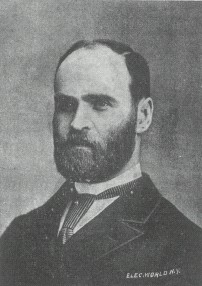
Alexander Macfarlane FRSE LLD was a Scottish logician, physicist, and mathematician.
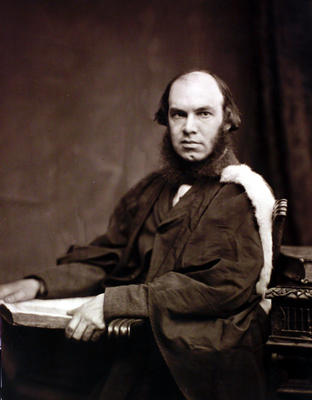
Edward Caird was a Scottish philosopher. He was a holder of LLD, DCL, and DLitt.

Sir Edmund Taylor Whittaker was a British mathematician, physicist, and historian of science. Whittaker was a leading mathematical scholar of the early 20th-century who contributed widely to applied mathematics and was renowned for his research in mathematical physics and numerical analysis, including the theory of special functions, along with his contributions to astronomy, celestial mechanics, the history of physics, and digital signal processing.
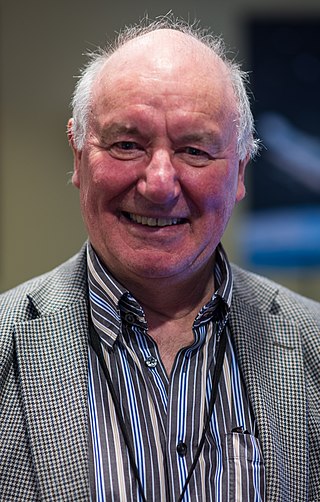
Malcolm Sim Longair is a British physicist. From 1991 to 2008 he was the Jacksonian Professor of Natural Philosophy in the Cavendish Laboratory at the University of Cambridge. Since 2016 he has been Editor-in-Chief of the Biographical Memoirs of Fellows of the Royal Society.
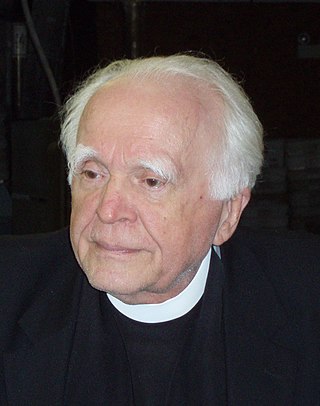
Stanley L. Jaki was a Hungarian-born priest of the Benedictine order. From 1975 to his death, he was Distinguished University Professor at Seton Hall University, in South Orange, New Jersey.
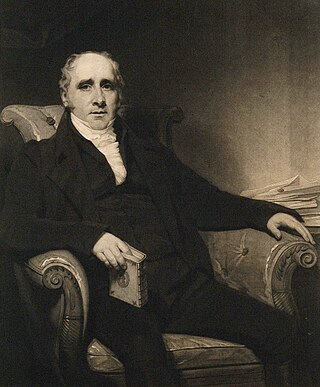
Thomas Charles Hope was a Scottish physician, chemist and lecturer. He proved the existence of the element strontium, and gave his name to Hope's Experiment, which shows that water reaches its maximum density at 4 °C (39 °F).

Christopher Michael Bishop is a British computer scientist. He is a Microsoft Technical Fellow and Director of Microsoft Research AI4Science. He is also Honorary Professor of Computer Science at the University of Edinburgh, and a Fellow of Darwin College, Cambridge. Chris was a founding member of the UK AI Council, and in 2019 he was appointed to the Prime Minister’s Council for Science and Technology.
Philip Ivor Dee CBE FRS FRSE was an English nuclear physicist. He was responsible for the development of airborne radar during World War II. The University of Glasgow named the Philip Ivor Dee Memorial Lecture after him.
Donal Donat Conor Bradley is the Vice President for Research at King Abdullah University of Science and Technology (KAUST), Saudi Arabia. From 2015 until 2019, he was head of the Mathematical, Physical and Life Sciences Division of the University of Oxford and a Professor of Engineering Science and Physics at Jesus College, Oxford. From 2006 to 2015, he was the Lee-Lucas Professor of Experimental Physics at Imperial College London. He was the founding director of the Centre for Plastic Electronics and served as vice-provost for research at the college.
Prof Ian Naismith Sneddon FRS FRSE FIMA OBE was a Scottish mathematician who worked on analysis and applied mathematics.
Sir Harry Work Melville, was a British chemist, academic, and academic administrator, who specialised in polymer research. He spent his early career in academia as a lecturer and researcher, before moving into administration as a civil servant and university college head.
References
- 1 2 3 4 "Royal Society of Edinburgh Research Awards". Archived from the original on 29 May 2008. Retrieved 13 March 2008.
- ↑ Whitehead, Alfred North (January 2004). The Principle of Relativity with Applications to Physical Science. Dover Publications. ISBN 9780486438887 . Retrieved 13 March 2008.
- 1 2 3 Proceedings of the royal society of edinburgh, volume 60, 1939-1940, p.441
- 1 2 3 "Cosmology: Methodological Debates in the 1930s and 1940s" . Retrieved 13 March 2008.
- ↑ page 351 of Volume 6 of the Niels Bohr Collected Works (North-Holland Physics Publishing, 1985)
- ↑ Title: Obituary - Dingle, Herbert, Authors: Whitrow, G. J., Journal: ROYAL ASTRON. SOC. QUARTERLY JOURNAL V. 21, P. 333, 1980
- ↑ Nature - Page 511 . Retrieved 10 April 2009.
- ↑ p. 130 of the Royal Society of Edinburgh, 1783-1983, Neil Campbell, 1983
- ↑ Year Book of the Royal Society of Edinburgh By Royal Society of Edinburgh Published by Royal Society of Edinburgh., 1983
- ↑ "Former Fellows of the Royal Society of Edinburgh. 1783-2002" (PDF). Archived from the original (PDF) on 4 October 2006. Retrieved 10 April 2009.
- ↑ Year Book of the Royal Society of Edinburgh - Page 53. 1990. 1990. Retrieved 10 April 2009.
- ↑ "lecture based on version appearing in Paul Arthur Schilpp, ed., The Philosophy of Karl Popper; revised lecture version published in Objective Knowledge, 1972". Archived from the original on 29 December 2008. Retrieved 17 September 2008.
- ↑ Year Book of the Royal Society of Edinburgh . Retrieved 6 April 2009.
- ↑ Year Book of the Royal Society of Edinburgh. 1983. Retrieved 6 April 2009.
- ↑ Year Book of the Royal Society of Edinburgh 1991 - P.23 . Retrieved 11 April 2009.
- ↑ "Research newsletter of the Department of Physics University of Strathclyde November 2007". Archived from the original on 1 May 2009. Retrieved 6 April 2009.